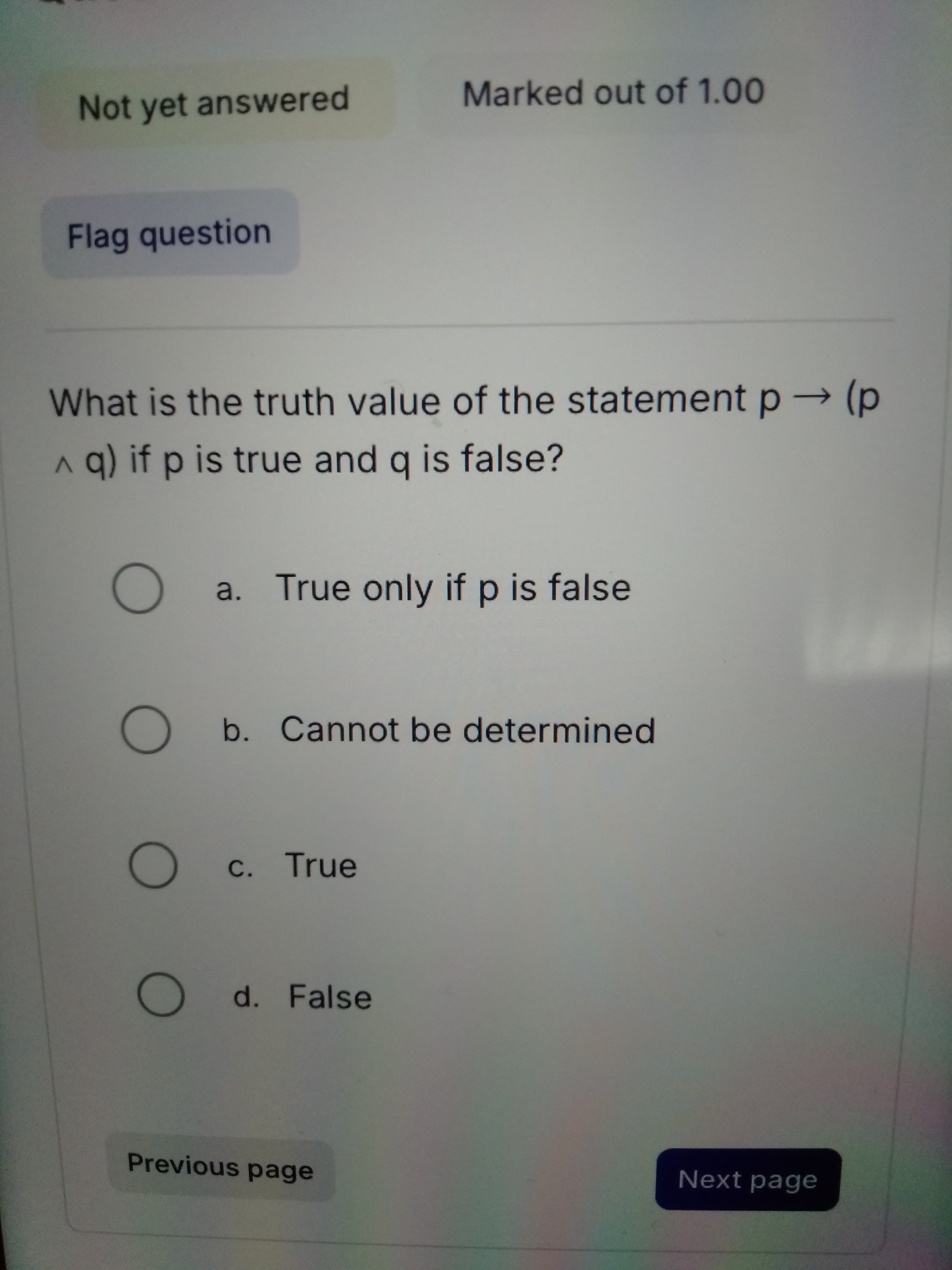What is the truth value of the statement p → (p ∧ q) if p is true and q is false?

Understand the Problem
The question is asking for the truth value of a logical statement involving variables p and q, where p is true and q is false. Specifically, it requires evaluating the implication of p leading to the conjunction of p and q.
Answer
The truth value is False.
Answer for screen readers
The truth value of the statement $p \to (p \land q)$ is False.
Steps to Solve
- Identify the values of p and q
Given that $p$ is true (T) and $q$ is false (F), we need to evaluate the expression $p \to (p \land q)$.
- Evaluate the conjunction (p ∧ q)
The conjunction $p \land q$ means both $p$ and $q$ must be true for the whole expression to be true. Since $p$ is true and $q$ is false: $$ p \land q = T \land F = F $$
- Evaluate the implication (p → (p ∧ q))
Now, we evaluate the implication $p \to (p \land q)$: Since $p$ is true (T) and $(p \land q)$ is false (F), the implication can be summarized as: $$ T \to F $$
- Determine the truth value of the implication
The truth value of an implication $A \to B$ is false only when $A$ is true and $B$ is false. Since we have: $$ T \to F = F $$
The truth value of the statement $p \to (p \land q)$ is False.
More Information
In logical statements, the form of implication dictates that if the first part (antecedent) is true but the second part (consequent) is false, the overall statement is false. This follows classical logic principles.
Tips
- Confusing conjunction ($\land$) with disjunction ($\lor$): Remember that conjunction requires both parts to be true.
- Misunderstanding the implication: It is crucial to remember that an implication is false only when a true antecedent leads to a false consequent.
AI-generated content may contain errors. Please verify critical information